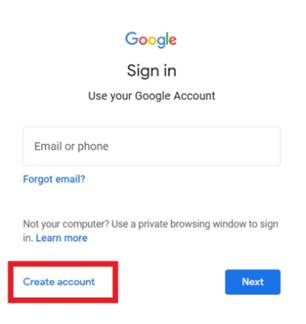Google
accounts hold some of our most sensitive information - from personal emails to
cloud-stored documents. Many people don't realize how vulnerable their digital
lives become when they neglect basic account security. Just like performing a
Huawei reset Google account procedure when troubleshooting device issues,
resetting your Google credentials at the right time can prevent serious
security problems. The challenge is knowing exactly when a password reset
becomes necessary rather than just precautionary. Whether it's suspicious login
attempts, forgotten passwords, or recent data breaches, certain situations
demand immediate action.

Key Signs You Should Reset Your Google Account
Suspicious
Activity or Unauthorized Access
One
of the clearest signs you need to reset your Google password is noticing
unfamiliar activity in your account. Google's security features will often
alert you if there's a login from an unrecognized device or location, but you
might also spot red flags yourself. Check your recent activity under account
security settings - do you see logins from countries you've never visited? Are
there sent emails you didn't write or files in Drive you didn't upload? Another
telltale sign is finding your password no longer works despite being certain
you entered it correctly, which could mean someone changed it after gaining
access. Don't ignore these warnings - immediately reset your password and
review all connected devices and apps. Enable two-factor authentication during
this process for added security.
Forgotten or Compromised Password
It
happens to everyone - you go to log in and suddenly can't remember your
password. While occasional memory lapses are normal, repeatedly forgetting your
credentials might indicate you're using passwords that are too complex to
recall easily. More seriously, if you suspect your password might be
compromised - perhaps you used the same one on another site that suffered a
breach - reset it immediately. Modern password managers can generate and store
strong, unique passwords so you don't have to remember them all. If you've ever
written down your Google password somewhere insecure or shared it with someone
temporarily, that's another good reason to change it. The reset process itself
is straightforward through Google's account recovery options, especially if
you've set up backup verification methods beforehand.

After a Security Breach or Data Leak
Major
data breaches occur with alarming frequency, and if you receive news that a
service you use has been compromised, it's wise to reset your Google password -
especially if you reused that password elsewhere. Google's systems are highly
secure, but credential stuffing attacks (where hackers try to breach
username/password combinations on other sites) remain common. Check websites
like Have I Been Pwned to see if your email appears in any known breaches. Even
if the breach didn't involve Google directly, any password exposure should
prompt a reset. Pay particular attention to breaches involving your recovery
email if it's different from your main Google account. After resetting, take
the opportunity to review all your security settings and connected third-party
apps.
Sharing Account Credentials Accidentally
We've
all had moments of carelessness - maybe you emailed your password to yourself
for convenience or shared it with a family member to access something
temporarily. Any instance where your Google credentials might have been
exposed, even to people you trust, warrants a password reset. This includes
situations where you logged in on a public computer and forgot to sign out, or
when you used your Google account to sign up for less reputable websites or
apps. Even if you trust the person you shared with, you can't control how
securely they handle your information or whether their devices might be
compromised. After resetting, establish better habits - use family sharing
features instead of sharing credentials, and consider creating separate
accounts for temporary access needs.
Best Practices for Resetting Your Google Account
Resetting
your password is just the first step - maintaining account security requires
ongoing attention. Experts recommend changing passwords every 3-6 months,
though more frequent changes aren't necessary unless you suspect compromise.
More important than frequent changes is using strong, unique passwords - a
password manager can help generate and remember these. Always enable two-factor
authentication (2FA), which adds critical protection even if someone gets your
password. Google's 2FA options include authenticator apps, security keys, and
phone prompts. Regularly check and update your recovery options - an outdated
phone number or backup email could lock you out when you most need access.
Review connected apps and devices periodically, removing anything you no longer
use.
Conclusion
Your
Google account is simply too valuable to leave vulnerable. The warning signs
for a reset are clear: suspicious activity, forgotten or potentially exposed
passwords, security breaches elsewhere, and any accidental sharing of
credentials. Unlike more complicated tech solutions, resetting your Google
password is a simple process that anyone can do in minutes - much like the
straightforward huawei reset google account procedure many users find helpful. By staying alert to
these warning signs and following security best practices, you can protect your
personal information, maintain privacy, and avoid the stress of account
recovery. Make account security part of your regular digital routine, and
you'll greatly reduce risks while enjoying peace of mind in our increasingly
connected world.
